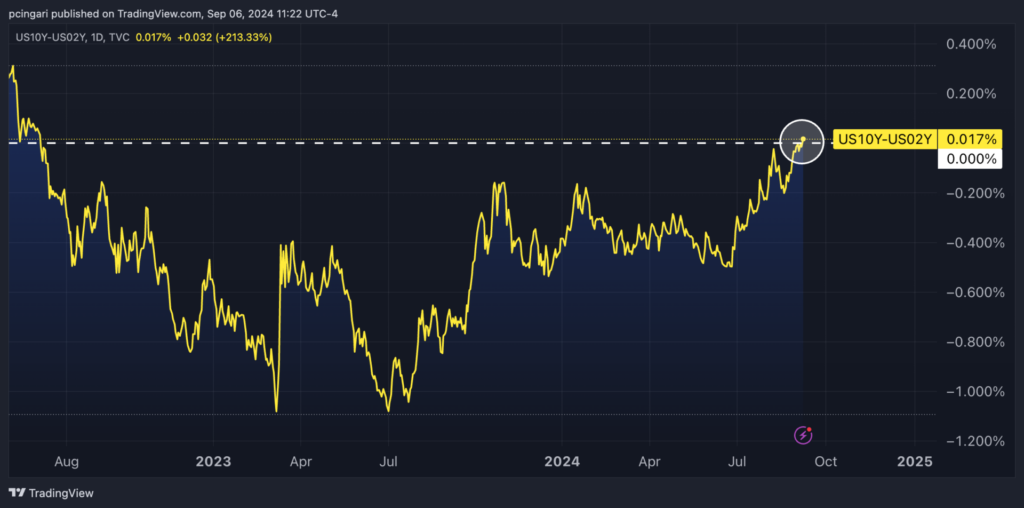Federal Reserve Anticipated to Take Drastic Action
The U.S. Treasury market witnessed a significant rally following the release of August labor data, reflecting a weaker-than-expected job growth trajectory. This unexpected turn of events has led investors to speculate about potential Federal Reserve interest rate cuts in the near future.
Market Response to Job Data
According to the latest data, the U.S. economy saw an addition of 142,000 nonfarm payrolls last month, falling short of the estimated 160,000 increase. Although an improvement from July’s figures, the statistics failed to meet market expectations. Notably, the unemployment rate slightly dipped to 4.3%, as projected, while wage growth exceeded forecasts.
Given these numbers, the odds of a 50-basis-point rate cut in September soared to 61% by mid-morning in New York—a marked increase from the 39% chance of a 25-basis-point cut. These estimates, based on CME Group’s FedWatch data, indicate growing confidence in the likelihood of aggressive monetary policy adjustments.
Adoption of Defensive Strategies
In response to the escalating expectations of rate cuts, traders swiftly turned to bonds, resulting in a significant decline in yields across the Treasury curve. The two-year yield, a key indicator of policy sentiment, plunged by over 10 basis points to 3.59%, hitting its lowest level since March 2023.
Similarly, the 10-year Treasury yield experienced a notable decline of 6 basis points, reaching 3.67%, a level not seen since June 2023. This shift has effectively normalized the yield curve, ending a prolonged period of inversion that has persisted for over two years.

Market Turmoil and Currency Fluctuations
The repercussions of these rate-cut speculations and dwindling Treasury yields were felt across various asset classes. Bond markets flourished, the dollar weakened notably against the yen, and equity markets stumbled, facing a wave of selling pressure.
Chief global strategist for LPL Financial, Quincy Krosby, remarked on the swift market reactions, attributing the decline in Treasury yields to the disappointing job numbers triggering a reassessment of economic conditions. The uncertainty surrounding the labor market’s trajectory post-COVID remains a focal point for investor deliberations.
- The iShares 20+ Year Treasury Bond ETF (TLT) surged by 1.1%, surpassing the $100 mark and heading towards its highest closing value since late July 2023.
- Similarly, the Invesco CurrencyShares Japanese Yen Trust (FXY) witnessed a gain of over 1%, poised to conclude the day at its highest level since early January 2024.
- Market volatility spiked, with the CBOE Volatility Index (VIX) surging 14% to 23.
- Conversely, equities faced a downturn, as the SPDR S&P 500 ETF Trust (SPY) dropped by 1.5% on Friday, extending its weekly decline to 3.9%, marking its worst weekly performance since March 2023.
- Tech stocks bore the brunt of the selloff, with the Invesco QQQ Trust (QQQ) experiencing a 2.4% decline, pushing its weekly losses above 5%.
- Notably, shares of Nvidia Corp. (NVDA) plummeted by 4%, extending its weekly losses to 14%, representing its most substantial decline in two years.

